John Ruskin - Lectures on Art, Delivered Before the University of Oxford in Hilary Term, 1870
Здесь есть возможность читать онлайн «John Ruskin - Lectures on Art, Delivered Before the University of Oxford in Hilary Term, 1870» — ознакомительный отрывок электронной книги совершенно бесплатно, а после прочтения отрывка купить полную версию. В некоторых случаях можно слушать аудио, скачать через торрент в формате fb2 и присутствует краткое содержание. Жанр: foreign_antique, foreign_home, literature_19, visual_arts, на английском языке. Описание произведения, (предисловие) а так же отзывы посетителей доступны на портале библиотеки ЛибКат.
- Название:Lectures on Art, Delivered Before the University of Oxford in Hilary Term, 1870
- Автор:
- Жанр:
- Год:неизвестен
- ISBN:нет данных
- Рейтинг книги:4 / 5. Голосов: 1
-
Избранное:Добавить в избранное
- Отзывы:
-
Ваша оценка:
- 80
- 1
- 2
- 3
- 4
- 5
Lectures on Art, Delivered Before the University of Oxford in Hilary Term, 1870: краткое содержание, описание и аннотация
Предлагаем к чтению аннотацию, описание, краткое содержание или предисловие (зависит от того, что написал сам автор книги «Lectures on Art, Delivered Before the University of Oxford in Hilary Term, 1870»). Если вы не нашли необходимую информацию о книге — напишите в комментариях, мы постараемся отыскать её.
Lectures on Art, Delivered Before the University of Oxford in Hilary Term, 1870 — читать онлайн ознакомительный отрывок
Ниже представлен текст книги, разбитый по страницам. Система сохранения места последней прочитанной страницы, позволяет с удобством читать онлайн бесплатно книгу «Lectures on Art, Delivered Before the University of Oxford in Hilary Term, 1870», без необходимости каждый раз заново искать на чём Вы остановились. Поставьте закладку, и сможете в любой момент перейти на страницу, на которой закончили чтение.
Интервал:
Закладка:
9. I need scarcely refer, except for the sake of completeness in my statement, to one form of demand for art which is wholly unenlightened, and powerful only for evil;—namely, the demand of the classes occupied solely in the pursuit of pleasure, for objects and modes of art that can amuse indolence or excite passion. There is no need for any discussion of these requirements, or of their forms of influence, though they are very deadly at present in their operation on sculpture, and on jewellers' work. They cannot be checked by blame, nor guided by instruction; they are merely the necessary result of whatever defects exist in the temper and principles of a luxurious society; and it is only by moral changes, not by art-criticism, that their action can be modified.
10. Lastly, there is a continually increasing demand for popular art, multipliable by the printing-press, illustrative of daily events, of general literature, and of natural science. Admirable skill, and some of the best talent of modern times, are occupied in supplying this want; and there is no limit to the good which may be effected by rightly taking advantage of the powers we now possess of placing good and lovely art within the reach of the poorest classes. Much has been already accomplished; but great harm has been done also,—first, by forms of art definitely addressed to depraved tastes; and, secondly, in a more subtle way, by really beautiful and useful engravings which are yet not good enough to retain their influence on the public mind;—which weary it by redundant quantity of monotonous average excellence, and diminish or destroy its power of accurate attention to work of a higher order.
Especially this is to be regretted in the effect produced on the schools of line engraving, which had reached in England an executive skill of a kind before unexampled, and which of late have lost much of their more sterling and legitimate methods. Still, I have seen plates produced quite recently, more beautiful, I think, in some qualities than anything ever before attained by the burin: and I have not the slightest fear that photography, or any other adverse or competitive operation, will in the least ultimately diminish,—I believe they will, on the contrary, stimulate and exalt—the grand old powers of the wood and the steel.
11. Such are, I think, briefly the present conditions of art with which we have to deal; and I conceive it to be the function of this Professorship, with respect to them, to establish both a practical and critical school of fine art for English gentlemen: practical, so that if they draw at all, they may draw rightly; and critical, so that being first directed to such works of existing art as will best reward their study, they may afterwards make their patronage of living artists delightful to themselves in their consciousness of its justice, and, to the utmost, beneficial to their country, by being given to the men who deserve it; in the early period of their lives, when they both need it most, and can be influenced by it to the best advantage.
12. And especially with reference to this function of patronage, I believe myself justified in taking into account future probabilities as to the character and range of art in England: and I shall endeavour at once to organise with you a system of study calculated to develop chiefly the knowledge of those branches in which the English schools have shown, and are likely to show, peculiar excellence.
Now, in asking your sanction both for the nature of the general plans I wish to adopt, and for what I conceive to be necessary limitations of them, I wish you to be fully aware of my reasons for both: and I will therefore risk the burdening of your patience while I state the directions of effort in which I think English artists are liable to failure, and those also in which past experience has shown they are secure of success.
13. I referred, but now, to the effort we are making to improve the designs of our manufactures. Within certain limits I believe this improvement may indeed take effect: so that we may no more humour momentary fashions by ugly results of chance instead of design; and may produce both good tissues, of harmonious colours, and good forms and substance of pottery and glass. But we shall never excel in decorative design. Such design is usually produced by people of great natural powers of mind, who have no variety of subjects to employ themselves on, no oppressive anxieties, and are in circumstances either of natural scenery or of daily life, which cause pleasurable excitement. We cannot design, because we have too much to think of, and we think of it too anxiously. It has long been observed how little real anxiety exists in the minds of the partly savage races which excel in decorative art; and we must not suppose that the temper of the Middle Ages was a troubled one, because every day brought its danger or its change. The very eventfulness of the life rendered it careless, as generally is still the case with soldiers and sailors. Now, when there are great powers of thought, and little to think of, all the waste energy and fancy are thrown into the manual work, and you have so much intellect as would direct the affairs of a large mercantile concern for a day, spent all at once, quite unconsciously, in drawing an ingenious spiral.
Also, powers of doing fine ornamental work are only to be reached by a perpetual discipline of the hand as well as of the fancy; discipline as attentive and painful as that which a juggler has to put himself through, to overcome the more palpable difficulties of his profession. The execution of the best artists is always a splendid tour-de-force; and much that in painting is supposed to be dependent on material is indeed only a lovely and quite inimitable legerdemain. Now, when powers of fancy, stimulated by this triumphant precision of manual dexterity, descend uninterruptedly from generation to generation, you have at last, what is not so much a trained artist, as a new species of animal, with whose instinctive gifts you have no chance of contending. And thus all our imitations of other people's work are futile. We must learn first to make honest English wares, and afterwards to decorate them as may please the then approving Graces.
14. Secondly—and this is an incapacity of a graver kind, yet having its own good in it also—we shall never be successful in the highest fields of ideal or theological art.
For there is one strange, but quite essential, character in us: ever since the Conquest, if not earlier:—a delight in the forms of burlesque which are connected in some degree with the foulness of evil. I think the most perfect type of a true English mind in its best possible temper, is that of Chaucer; and you will find that, while it is for the most part full of thoughts of beauty, pure and wild like that of an April morning, there are even in the midst of this, sometimes momentarily jesting passages which stoop to play with evil—while the power of listening to and enjoying the jesting of entirely gross persons, whatever the feeling may be which permits it, afterwards degenerates into forms of humour which render some of quite the greatest, wisest, and most moral of English writers now almost useless for our youth. And yet you will find that whenever Englishmen are wholly without this instinct, their genius is comparatively weak and restricted.
15. Now, the first necessity for the doing of any great work in ideal art, is the looking upon all foulness with horror, as a contemptible though dreadful enemy. You may easily understand what I mean, by comparing the feelings with which Dante regards any form of obscenity or of base jest, with the temper in which the same things are regarded by Shakespeare. And this strange earthly instinct of ours, coupled as it is, in our good men, with great simplicity and common sense, renders them shrewd and perfect observers and delineators of actual nature, low or high; but precludes them from that specialty of art which is properly called sublime. If ever we try anything in the manner of Michael Angelo or of Dante, we catch a fall, even in literature, as Milton in the battle of the angels, spoiled from Hesiod; while in art, every attempt in this style has hitherto been the sign either of the presumptuous egotism of persons who had never really learned to be workmen, or it has been connected with very tragic forms of the contemplation of death,—it has always been partly insane, and never once wholly successful.
Читать дальшеИнтервал:
Закладка:
Похожие книги на «Lectures on Art, Delivered Before the University of Oxford in Hilary Term, 1870»
Представляем Вашему вниманию похожие книги на «Lectures on Art, Delivered Before the University of Oxford in Hilary Term, 1870» списком для выбора. Мы отобрали схожую по названию и смыслу литературу в надежде предоставить читателям больше вариантов отыскать новые, интересные, ещё непрочитанные произведения.
Обсуждение, отзывы о книге «Lectures on Art, Delivered Before the University of Oxford in Hilary Term, 1870» и просто собственные мнения читателей. Оставьте ваши комментарии, напишите, что Вы думаете о произведении, его смысле или главных героях. Укажите что конкретно понравилось, а что нет, и почему Вы так считаете.
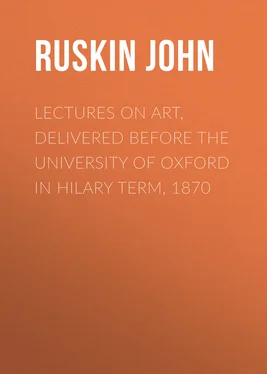



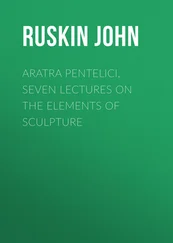
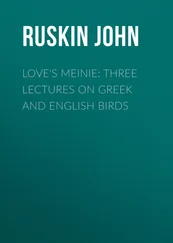

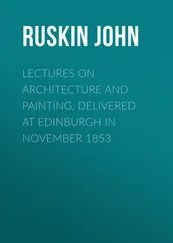

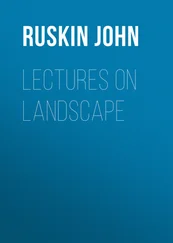


![John Bruce - The Lettsomian Lectures on Diseases and Disorders of the Heart and Arteries in Middle and Advanced Life [1900-1901]](/books/749387/john-bruce-the-lettsomian-lectures-on-diseases-and-disorders-of-the-heart-and-arteries-in-middle-and-advanced-life-1900-1901-thumb.webp)